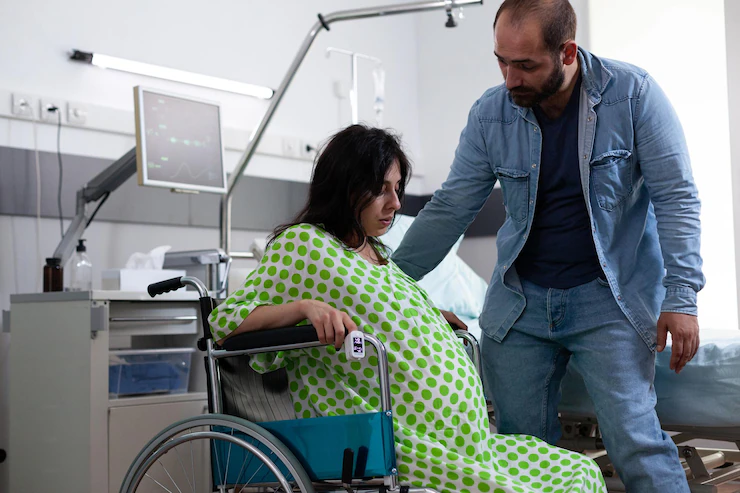Pregnancy is a transformative and joyful experience for many women. However, for women with disabilities in South Africa, it can present unique challenges that require special attention and support. Accessible maternity services are essential to ensure that all pregnant women, regardless of their disability, receive equitable and comprehensive care. In this article, we will explore the importance of accessible maternity services for women with disabilities in South Africa and discuss potential strategies to enhance inclusivity and support during pregnancy.
- Physical Accessibility: One of the primary considerations for accessible maternity services is ensuring physical accessibility in healthcare facilities. Many pregnant women with disabilities face barriers such as inaccessible entrances, narrow hallways, and lack of ramps or elevators. These physical barriers limit their ability to access prenatal care, ultrasounds, and other essential services.
Solution: Healthcare facilities need to prioritize creating accessible environments that cater to the needs of women with disabilities. This includes installing ramps and elevators, widening doorways, providing accessible restrooms, and ensuring examination tables and equipment are designed to accommodate individuals with disabilities. In addition, training healthcare providers on inclusive practices and sensitivity towards disabilities is crucial to ensuring a welcoming and supportive environment.
- Communication and Information Accessibility: Effective communication is vital for pregnant women with disabilities to understand and actively participate in their healthcare decisions. Language barriers, limited sign language interpreters, and inaccessible communication methods can hinder their access to crucial information about prenatal care, pregnancy complications, and childbirth.
Solution: Healthcare facilities should offer communication support services, such as sign language interpreters or alternative communication methods, to ensure effective and inclusive communication with pregnant women with disabilities. Information and educational materials should be available in accessible formats, such as braille, large print, or digital formats, to cater to various disabilities. Healthcare providers should also receive training on inclusive communication techniques to effectively interact with women with disabilities.
- Assistive Devices and Equipment: Women with disabilities may require assistive devices or equipment to support their mobility and comfort during pregnancy. However, the lack of accessibility and availability of these devices can pose significant challenges.
Solution: Healthcare facilities should ensure the availability of assistive devices such as wheelchairs, crutches, or walking aids to support pregnant women with disabilities. Collaborations with disability support organizations or assistive technology providers can help facilitate access to these devices. Additionally, healthcare providers should receive training on assisting women with disabilities in using these devices during examinations and procedures.
- Supportive Staff and Services: Pregnant women with disabilities may require additional support during prenatal care, childbirth, and postnatal care. Healthcare providers need to be trained in disability-inclusive practices and equipped to address the specific needs of women with disabilities.
Solution: Healthcare facilities should prioritize training healthcare providers in disability-inclusive care and sensitizing them to the unique challenges faced by pregnant women with disabilities. This includes understanding different disabilities, providing appropriate support and assistance during examinations, consultations, and childbirth, and addressing any concerns or specific needs with empathy and respect.
- Community Engagement and Advocacy: Creating an inclusive healthcare system requires collaboration and advocacy at the community level. Engaging disability organizations, community leaders, and women with disabilities themselves is crucial for understanding their specific needs and ensuring their voices are heard in healthcare policies and practices.
Solution: Establishing community-based support networks and engaging disability organizations in the planning and implementation of accessible maternity services can help identify gaps and develop inclusive solutions. Encouraging active participation and empowerment of women with disabilities through support groups and peer networks can provide them with the necessary knowledge and resources to navigate their pregnancy journey.
In conclusion, ensuring accessible maternity services for women with disabilities in South Africa is a crucial step towards achieving inclusive and equitable healthcare. By addressing physical accessibility, communication barriers, assistive device availability, staff training, and community engagement, healthcare facilities can better meet the unique needs of pregnant women with disabilities. Emphasizing the importance of accessible maternity services and implementing inclusive practices will not only enhance the well-being of women with disabilities but also promote a society that values and supports the reproductive rights and health of all women, regardless of their abilities.










